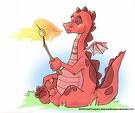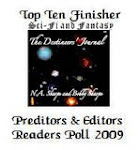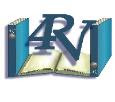
As authors we make many decisions. The story, setting, characters all lie in our imaginations and storytelling. In traditional novels we may choose to set the story in the real world as we know it - or perhaps an alternative history to our world, however, in fantasy and science fiction we create not only our story but the story of the world in which our story takes place. There are many things to consider when we build worlds.
Government is but one element. There are many types of government we have experienced in our world through various cultures throughout the world throughout the years. When you consider worldbuilding for your story, what type of government will rule your world? Here are some possibilities to consider:
• Absolute Monarchy -- kingdom in which monarch has complete power
• Anarchy -- absence of government
• Aristocracy -- government by a wealthy, privileged minority or hereditary ruling class
• Caliphate -- government by Islamic civil and religious leader
• Civil Government -- government established by laws made by citizens or their representatives; nonmilitary, nonreligious authority
• Coalition Government -- temporary alliance of members of two or more parties to form governing majority
• Collective -- group or institution organized and run by all members equally
• Commonwealth -- government in which ultimate authority lies with people
• Constitutionalism -- government based on written constitutional principles
• Constitutional Monarchy -- government headed by monarch and regulated by constitution
• Democracy -- government by the people with majority rule exercised in periodic, free election of representatives
• Despotism -- government in which ruler exercise absolute power
• Dictatorship -- government in which absolute power rest with one person or a few
• Duarchy or duumvirate -- government by two equally powerful rulers
• Dyarchy -- dual responsibility shared by colonial government and native ministers
• Empire -- several territories, nations or peoples governed by single sovereign authority
• Fascism -- government based on establishing oppressive, one-part, centralized national regime
• Federal Government -- system in which political units surrender individual sovereignty to central authority, but retain designated powers
• Feudalism -- political system in Europe from 9th to 15th century in which lord owned all property worked by vassals
• Gerontocarcy -- rule by elders
• Gynecocracy -- government by women
• Hagiocracy -- government by group of persons believed to be holy
• Hierocracy -- rule by priest or clergy
• Isocracy -- government in which all individuals have equal political power
• Matriarchy -- government or monarchy in which power rests with females or descends through female line
• Meritocracy -- government in which criterion for leadership is skill or intellectual achievement
• Monarchy -- government with absolute hereditary ruler who serves for life
• Ochlocracy -- rule by the multitude or mob
• Oligarchy -- government by small group of privileged individuals
• Pantisocracy -- utopia in which all members rule equally
• Parliamentary Government -- system in which executive (prime minister) is chosen by elected legislature (parliament) from among its members
• Patriarchy -- government or monarchy in which power rests with males or descends through male line
• Plutocracy -- government by the wealthy
• Principality -- state ruled by a prince, often part of larger state or empire
• Regency -- reign of non-monarch during youth or indisposition of monarch
• Republic -- government in which power is vested in elected representatives of citizenry
• Sovereignty -- political autonomy and freedom of state from outside authority
• Stratocracy -- government by the military
• Technocracy -- government run by experts and technicians
• Thearchy -- government based on divine sovereignty
• Theocracy -- government by church officials, who believe they have divine authority
• Timocracy -- government based on love of honor and military glory or on requisite ownership of property
• Totalitarianism -- authoritarian political system in which citizen is totally subject to will of state
• Triarchy -- government ruled jointly by three person; triumvirate
• Tyranny -- government by single absolute authority, especially one exercising oppressive power
• Unitary Government -- system in which power is held by single central source, and local governments are merely administrative agents, the opposite of federalism
• Welfare State -- system in which ultimate responsibility of government is well being of all citizens
Choosing how to run your country will have an obvious impact on every day life. Where will your imagination lead you and your story? Which system of government will you opt for in your world? Why? Think about the impact it will have one your storyline and how the storyline will depend on details such as this. It is mindboggling how much the change of one detail, such as government, can change your entire story.
Like this post? Tweet it! Go ahead, you know you want to!
Wednesday, November 4, 2009
Worldbuilding Wednesday - Politics in the Making
Posted by
N A Sharpe
at
3:00 AM
7
comments
![]()
![]()
Labels: fantasy, NA Sharpe, Realms of Thought, Sci-fi, Worldbuilding, Worldbuilding Wednesday
Wednesday, September 9, 2009
Worldbuilding Wednesday: Timelines

One consideration when worldbuilding for your story might involve determining when in time the story is to take place. Is it a futuristic tale? Something from a present day feel? Or, perhaps you are going to borrow the way-back machine and take a glimpse into the past and inter-mingle historic events with your fictitious storyline, a genre referred to as historical fiction. Alternatively, your worldbuilding time line may offer a glimpse into an alternate timeline based in a realistic historical time period…a “what if” scenario if the time space continuum is disrupted by one simple change in the historical timeline as we know it. This is called alternative historical fiction.
The internet and bookstores are my favorite resources for gathering facts about historic details, but if you have a good library near by, then plan to spend some time there if you write in a historical time frame.
One book I have found helpful is an Encyclopedia of World History, Compiled and Edited by William L. Langer. This book covers the history of entire era in chunks, and you can look up specific dates and see what was going on elsewhere in the world at the same time. This can be a very useful tool for generating ideas.
The Internet, however, remains my favorite resource for researching knowledge of the past. While it might be an easier way to find a lot of information, you have to keep in mind that not everything on the Internet is reliable. It's a good idea to double check every fact and date. In fact, fact checking is always a good habit to practice.
If you are writing historical fiction -- or a fantasy set in a historical period -- you may want to consider haunting used book stores and book sales and pick up a good, out of date encyclopedia. If the majority of information you intend to look up is from the medieval 1500's it isn't going to matter if your encyclopedia was printed in 1984 or last month. As these reference books are typically inexpensive resources (particularly if they have an older date of print) you can afford to purchase these treasure troves and highlight areas, write notes in the margins, and put reference tabs throughout the book virtually guilt free. You can also make notes in these historical references as to how it is going to tie into your created timeline and storyline.
Remember, worldbuilding does not occur only in the realms of fantasy and science fiction. Virtually all fiction requires some degree of worldbuilding. Other research suggestions? What works for you? Are there favorite resources you have found?
Like this post? Tweet it! Go ahead, you know you want to! 
Posted by
N A Sharpe
at
3:00 AM
4
comments
![]()
![]()
Labels: fantasy, NA Sharpe, Realms of Thought, Worldbuilding
Wednesday, August 19, 2009
Worldbuilding Wednesday

Fantasy is not an abandonment of logic – it is a reinvention of it with imagination fueling its life source. To make fantasy believable, you need to create an alternate structure of logic – a world that follows rules and has consequences when these rules are broken. For fantasy to truly work you need to have a logical structure within your world. Like science, it follows a pattern of consistencies within the knowledge of the world. Things don’t seem to happen randomly in a fantasy world – it is a land of cause and effect. Someone or something is always responsible. This is the logic behind all fantasy stories.
It is at the very core of how many of us are raised as children – we learn to believe in the happily ever afters, the characters like Santa Claus, the Easter Bunny and Tooth Fairy. We learn the fundamentals of “magical thinking”: “if you wish hard enough for something it can come true” and that the power of your thoughts and actions can make totally unrelated things come true: “step on a crack and you break your mother’s back” You are empowered.
Magical thinking presumes that an object that represents an object controls it and that there is power in words. This is often a basic building block in the power of magic through fantasy.
Every great fantasy is built on a logic system that may seem silly in a rational “real” world – but it is still consistent and complete and works for your fantasy realm. If, for example, dogs talked in your fantasy world it would be equally logical that cats could talk as well. If saying specific magical words can make fantastical things happen, it only stands to reason that mispronouncing the magical words can have disastrous results. Fantasy works by its own rules – but it does have rules. You can set the rules in any manner you like, but once set you have to consistently follow them or the premise of your world will collapse around you; you will lose credibility and lose the trust of your readers.
The realms of both science fiction and fantasy can take you anywhere – it is limited only by your own imagination – taking you to worlds that don’t exist outside your own creation. Both realms require that you strictly follow whatever rules you put into place and the structures of believability you construct. The difference is science fiction is rooted in the logic of the physical universe while fantasy is rooted in the logic of your personal universe.
As novelists we often create our own micro-worlds, even outside the realms of fantasy and science fiction. We are, after all working in a fictitious world or city or town with fictitious characters and the basics still apply. You must follow the rules that are in place or there will be consequences and chaos. This is a reality that transcends genres. We are all world builders in our own right and we gladly welcome our readers into the worlds of our stories. How do you world build? What elements do you bring into your world – do you like working with small towns and a close view of your characters lives or do you prefer settings in a large bustling city? What is the personality of your world?
Posted by
N A Sharpe
at
5:34 AM
8
comments
![]()
![]()
Labels: Epic Fantasy, NA Sharpe, Realms of Thought, Sci-fi, Worldbuilding
Wednesday, July 29, 2009
Worldbuilding Wednesday

Assimilating with the Environment
When you are building your world, you are doing much more than drawing a map. You need to take into consideration the people or beings that will inhabit your world. You will need to consider such elements as food sources and environment and the ways it interacts with your characters – is food plentiful? A society where the land is rich and fertile giving to unlimited agricultural possibilities would be a very different world than one that may be dying – the soil is barren, and disease has tainted the meat supply. Determining all these details of the environment such as weather conditions, geography, how well it lends itself to supporting life (fertile vs. barren land) can help you with plotting your novel as your characters move through the story. The environment may have major implications for back story and elements your characters are dealing with or be there merely to help the reader get a mental picture of your world.
Sometimes it is easy to overlook details like clothing and jewelry when growing your world, yet it often exists subtly in the story in a myriad of color and style. Is clothing something organic – perhaps made of wool where you would need to consider the sheep for sheering to obtain the wool for weaving – perhaps there is bickering over land rights between certain groups of the inhabitants of your world for land rights for the animals to graze.
Are there specific types and styles according to the season of the year? Are the styles of clothing in general apt to change quickly, and anyone of worth has to scramble to keep up or be considered no longer 'in?' What about jewelry? What sorts of items exist and how are they worn? What do they signify? Do weapons form part of the jewelry the people wear, and if so are the weapons symbolic, or is the person expected to know how to use them? Do some jewels signify a cultural status?
While these questions may seem trivial and may not, in the scheme of things, seem important to your story, asking these types of questions can help the author to build the world in their mind and as they work out all of the fine points of the world – the more real and whole and detailed it appears in their mind, the more real they will make it become to their readers.
Like this post? Tweet it. Go ahead, you know you want to!
Posted by
N A Sharpe
at
6:37 AM
11
comments
![]()
![]()
Labels: fantasy, NA Sharpe, Realms of Thought, Worldbuilding, writing
Wednesday, May 20, 2009
The Road to Worldbuilding

There are four basic elements in every story: plot, character, theme and setting. As writers we keep the plot compelling - engaging our readers and bringing them along every step of the way. If the plot is predictable we lose our readers to boredom. Characters, whether human or from another genre, have to be multi-dimensional, realistic and identifiable so readers will care about the characters and want to read their story. Theme is what makes the story more than mere entertainment. In the fantasy genre, even if the setting is not the major focus, it is paramount to build a credible world for your story. The key to this is creating a world as a whole – with depth - paying close attention to the many details that interconnect to make it work; it is through these interactions that you build an internal logic to your empire. The process is similar to building credible characters – the realism of your imaginary world is born through the details and back-story of the history of the realm you create. These details are usually revealed, at least in some degree, as the story unfolds.
Over the next weeks I thought I would dedicate Wednesdays to the art of worldbuilding. How much worldbuilding will you have to do and what elements of a new world will you have to consider? The amount of detail you need within your created world will depend on your story line. You may just need enough to keep your world interesting with enough twists to keep the reader’s attention yet not to distract them from the storyline. If, however, the storyline has some element of this world as the cause of the conflict in your story, you will need to delve much deeper into the back-story and the interconnections of this world. Why do you want/need a new world? Could your story take place in our world but you are looking for a new and interesting location or is this new world pivotal to your storyline? These are key questions to be answered, looking closely at the plot of the story churning in your imagination eagerly waiting to be told.
Like this post? Tweet it. Go ahead, you know you want to!
Posted by
N A Sharpe
at
11:56 AM
9
comments
![]()
![]()
Labels: fantasy, Just a thought, NA Sharpe, Nancy Sharpe, Worldbuilding

























